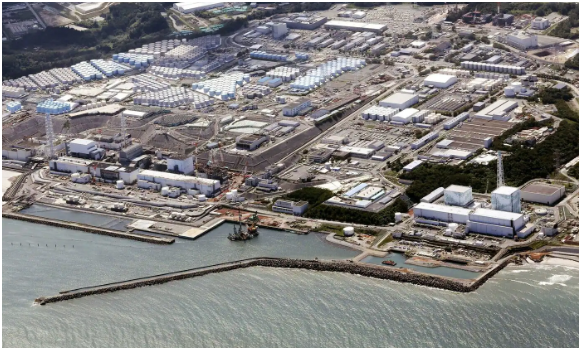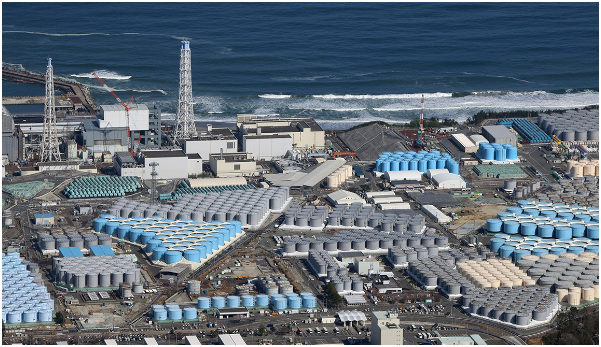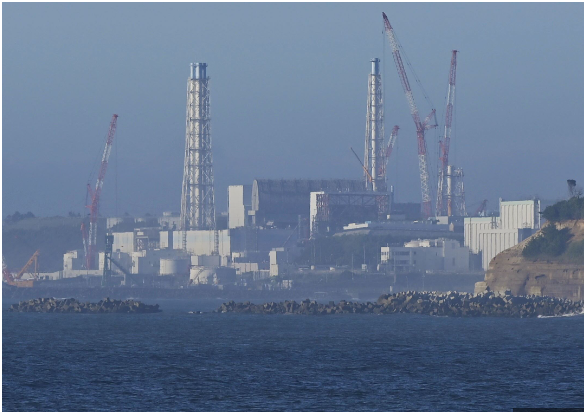Japan and China Experts Unite to Empower Safe Disposal of Treated Radioactive Water
Japan and China Experts Unite to Address Safe Disposal of Treated Radioactive Water
The issue of discharges from the Fukushima Daiichi nuclear power plant has sparked opposition from fishing groups and neighboring countries, particularly China. To address Beijing’s concerns regarding the discharge of treated radioactive wastewater into the sea, Japan has initiated talks between its experts and their Chinese counterparts.
On Sunday, Japan announced that discussions had taken place between the two sides, aimed at providing reassurance and scientific explanations regarding the safe execution of the discharges. The Japanese Foreign Ministry emphasized that the discharges have been carried out according to scientifically sound procedures, despite opposition from various quarters.

The discharge of treated radioactive water from the Fukushima plant has been a contentious issue since the devastating earthquake and tsunami of 2011 severely damaged its power supply and reactor cooling systems. Subsequent meltdowns led to the accumulation of large amounts of radioactive wastewater. After more than a decade of storage in tanks occupying significant space on the plant premises, the decision was made to commence discharge operations on August 24. This process involves treating the water at least once and diluting it with seawater, a strategy expected to span several decades.
In a move to address concerns and foster dialogue, Japanese Prime Minister Fumio Kishida and Chinese President Xi Jinping agreed during their November summit meeting to facilitate scientific discussions between experts from both countries. Following this agreement, several informal meetings have been held between the two sides. The recent statement from the Japanese Foreign Ministry marks the first public acknowledgment of these talks.
During the discussions held in the northeastern Chinese city of Dalian, Japanese officials provided comprehensive explanations based on scientific principles regarding the safety measures implemented during the discharge process. However, due to the sensitivity of the issue, specific details of the talks, including the content of discussions and any potential narrowing of differences, have not been disclosed by Japanese officials.
The timing of these discussions is notable, coming shortly after a visit to the Fukushima plant by Rafael Mariano Rafael, the chief of the International Atomic Energy Agency, in mid-March. Rafael’s visit confirmed the successful and safe execution of the ongoing discharge operations, providing further validation of Japan’s approach to managing the radioactive wastewater.
Moving forward, transparency and continued dialogue will be crucial in addressing concerns and fostering mutual understanding between Japan and China. By engaging in constructive discussions and adhering to scientific principles, both countries can work towards resolving this contentious issue and promoting regional stability and cooperation.
Despite the challenges posed by differing perspectives and concerns, the willingness of Japan and China to engage in constructive dialogue represents a positive step towards building trust and promoting regional stability. By fostering open communication and collaboration, both countries have the opportunity to address shared challenges in a manner that respects scientific principles and upholds international standards of environmental protection.
As discussions continue, it is essential for all parties involved to remain committed to transparency and accountability. Providing regular updates and sharing relevant information with the public will help build confidence and ensure that decisions are made based on sound scientific evidence and thorough risk assessments.
Moreover, the ongoing dialogue between Japan and China serves as a testament to the power of diplomacy and multilateral cooperation in addressing complex global issues. By working together and leveraging their respective expertise, both countries have the potential to set a positive example for the international community and contribute to the advancement of nuclear safety and environmental protection worldwide.
Recent talks between Japanese and Chinese experts on the disposal of treated radioactive water from the Fukushima Daiichi nuclear power plant represent a significant milestone in efforts to address regional concerns and promote cooperation. By engaging in open and constructive dialogue, both sides have demonstrated a commitment to finding mutually acceptable solutions based on scientific evidence and international best practices. As discussions continue, it is imperative for all parties involved to remain transparent, accountable, and committed to upholding the highest standards of environmental protection and nuclear safety.
For the latest updates-click here.
